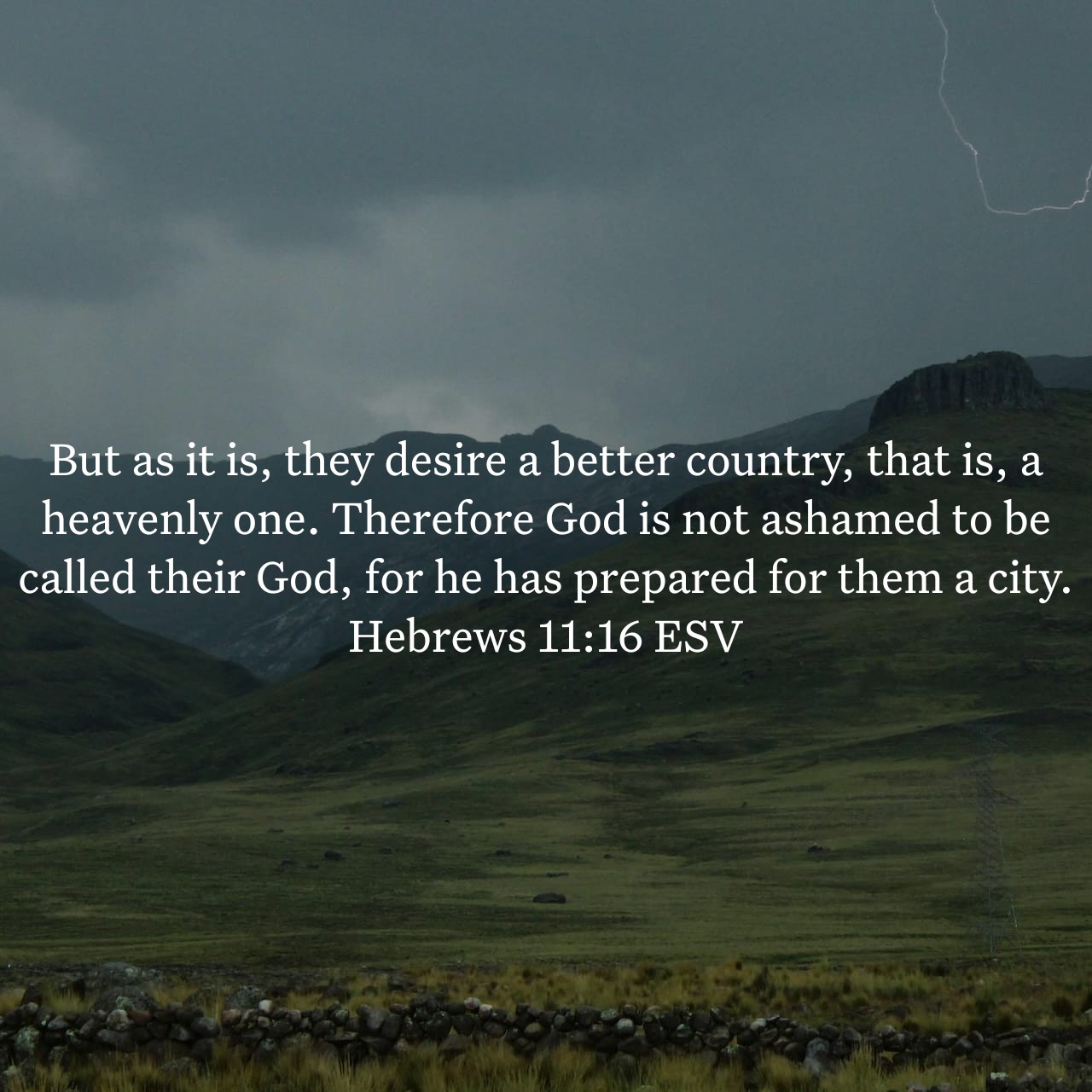Devotional 23 July 2025

Hebrews 11 tells the story of saints who walked by faith, not by sight. In verses 13–16, we are told that Abraham, Isaac, and Jacob died without receiving the fulfillment of God’s promises—yet they died in faith. Though they lived in the land of promise, they were still strangers, longing not just for soil but for a city prepared by God (v.16). They looked forward to something greater—a heavenly kingdom that they welcomed from afar.
This is a recurring theme in Hebrews: If the old covenant had fulfilled the promise, there would be no need for a new one (Heb. 4:8–9; 8:13). The patriarchs understood that the fullness of God’s promise was not in Canaan but in Christ. Jesus confirms this when He says, “Abraham rejoiced that he would see my day. He saw it and was glad” (John 8:56). Their eyes were fixed forward—toward Jesus, the better mediator of a better covenant.
The patriarchs were looking for the heavenly country, not an earthly homeland. They were looking for something more than geography, they longed for God’s reign, His presence, His Kingdom among mankind (Jeremiah 31:33-34, Revelation 21:1-4). Jesus is the one who brings this city to light, He is the one who brings what was once far off, close to Himself (Ephesians 2:13, 2 Peter 2:10).
Though they never lived to see it, God was not ashamed to be called their God (v.16). He honored their longing as true faith. How much more, then, should we live with gratitude and reverence, having received the promises they only glimpsed? We are already citizens of the heavenly Jerusalem (Heb. 12:22), and Jesus Himself has prepared a place for us (John 14:2).
Let us not drift away (Heb. 2:1), but pay much closer attention to the message of Christ. The patriarchs longed for what we now hold in our hands. God was proud to be their God. Will we live in such a way that He is proud to be ours?
The patriarchs still speak as a further witness to a faith that sees the unseen. May we have ears to hear.